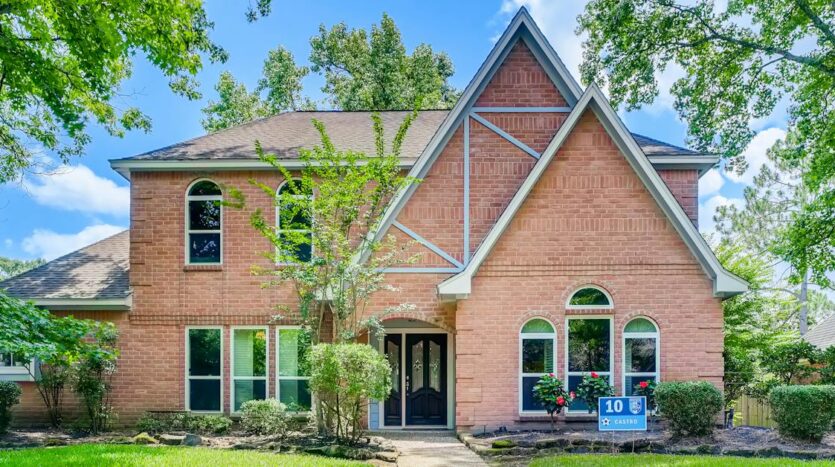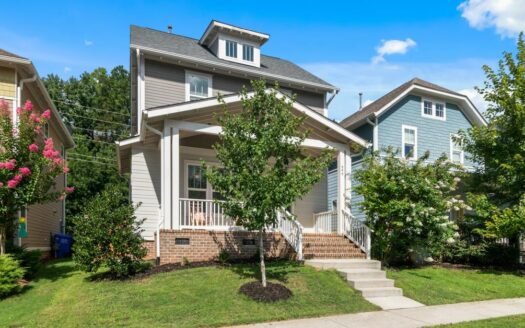Property management duties and responsibilities in Lagos, Nigeria
Welcome to Lagoshousehunter, a prospering marketplace in Lagos, Nigeria, where property management and excellence come together. In this post, we tackle the essential tasks and obligations related to property management in this growing city, highlighting the particular difficulties and practical solutions that guarantee smooth real estate operations.
7 Effective Property management duties and responsibilities
1. Tenant Relations: Establishing positive relationships with residents is essential. Effective communication, addressing concerns promptly, and encouraging a sense of community contribute to tenant satisfaction and long-term occupancy.
2. Maintenance and Repairs: Proactive maintenance ensures the property’s longevity and enhances the resident experience. Regular inspections, fast response to repair requests, and preventative measures preserve the property’s value.
3. Rent Collection: Timely and efficient rent collection is essential for financial stability. Implementing clear rent policies automated systems, and addressing payment issues promptly contribute to consistent cash flow.
4. Property Marketing: Strategic marketing attracts potential inhabitants. Leveraging digital platforms, professional photography, and highlighting unique property features enhance visibility, reducing vacancies and maximizing returns.
5. Legal Compliance: Navigating complex legal frameworks is crucial. Staying informed on living laws, ensuring proper documentation, and compliance with local regulations safeguard property owners and managers from legal complications.
6. Financial Management: Sound financial practices are vital. Budgeting, tracking expenses, and providing transparent financial reports enable property owners to make informed decisions and maintain the property’s financial health.
7. Risk Management: Identifying and mitigating risks safeguards property investments. From insurance coverage to emergency preparedness, a comprehensive risk management strategy ensures a secure and resilient property portfolio.
property management agreement
A property management agreement is legally binding between a property owner and a management company or individual property manager. This paper defines terms and duties associated with property management. Usually, it includes information about the services provided, like maintenance, rent collection, and resident verification. The agreement details the length of the arrangement, the pay quantity, and any special terms or limitations. This contract is essential to safeguard the interests of both parties, set clear expectations, and maintain an open and honest working relationship in property management.
Property management functions
1. Management of Tenants:
One of the primary responsibilities of property management is efficient tenant management. This includes assessing potential tenants, drafting leases, responding to questions from potential tenants, and handling complaints. Maintaining a good tenant experience helps increase the property’s value and tenant retention.
2. Maintenance and Repairs
The property managers are responsible for supervising the maintenance and fixes of the property. This involves organizing repairs, responding quickly to maintenance requests, and conducting regular checks. Preventive care maintains the property’s condition and value while improving tenant satisfaction.
3. Monetary Control:
One essential task is to manage the property’s financial operations. This includes operating expenses, budgeting, collecting rent, and giving property owners financial reports. Proper financial management guarantees the property’s financial stability and supports the decision-making process for property owners.
Property Management in Nigeria
Property management in Nigeria involves a constantly changing real estate environment with a wide range of market trends and rapid urbanization. In Nigeria, property managers manage essential tasks like maintenance, tenant relations, and local law compliance. The industry must find creative solutions to address issues with infrastructure and complicated regulations. Nigeria’s real estate is vibrant, and Lagos is a focal point to illustrate this. Property owners must practice effective property management to maximize financial returns, negotiate complex legal issues, and support the expansion and stability of the nation’s real estate market.
Difference between property management and facility management
The scope and focus of property management and facility management are different. Property management’s primary responsibility is supervising real estate assets, such as residential and commercial buildings. It includes duties like property maintenance, rent collection, and tenant relations.
On the other hand, facility management focuses on making physical spaces as functional as possible while meeting operational requirements. This covers a broader range of tasks, such as maintaining equipment, setting up building systems, and establishing a comfortable workspace.
While property management focuses on the relationship between tenants and landlords as well as the performance of the property, facility management is primarily concerned with the effective operation and upkeep of the actual physical facilities.
Property management companies in Nigeria
Lagos House Hunter is Nigeria’s best property management company, providing exceptional real estate services that no other company can contest. Well-known for its dedication to customer satisfaction, the business distinguishes itself with creative solutions, open communication, and in-depth knowledge of Nigeria’s ever-changing real estate market. Lagos House Hunter guarantees the best returns for property owners by excelling in tenant relations, maintenance of properties, and strategic marketing. Delivering top-notch property management solutions consistently in the competitive Nigerian real estate market, Lagos House Hunter stands out as a reliable partner with a track record of success and a commitment to industry-leading practices.
What is the service charge in property management?
The typical management fee in Nigeria equals 10% of the monthly rent. It would help if you ascertained the explanation behind any pricing adjustments the property management company made.
In Lagos, Nigeria, the service charge for property management usually amounts to between 5% and 15% of the annual rent. This portion goes toward paying for the expenses related to the upkeep of shared spaces and offering necessities. The exact proportion, however, may differ depending on elements like the kind of property, the variety of the facilities provided, and the general maintenance needs. Property owners and tenants must comprehend and concur upon the service charge percentage in writing as part of the lease agreement to maintain transparency and efficient administration of shared facilities.
5 Objectives of property management
1. Maximizing Property Value: Increasing and maintaining the property’s value over time is one of property management’s primary goals. To guarantee the property’s long-term appreciation entails strategic maintenance, improvements, and effective operations.
2. Maximizing Rental Income: Property management aims to increase owners’ rental income. As mentioned earlier, the responsibilities involve determining market-competitive rental rates, guaranteeing regular rent collection, and reducing empty apartments via efficient marketing and tenant retention tactics.
3. Ensuring Tenant Satisfaction: Giving renters a satisfying place to live or work is essential. To increase tenant satisfaction, property managers strive to maintain the building, promptly address concerns raised by tenants, and create a feeling of community.
4. Legal Compliance: Keeping informed of and adhering to relevant laws and regulations is necessary for property management. Adherence to local, state, and federal regulations guarantees efficient functioning, mitigating legal risks for property proprietors and administrators.
5. Efficient Operations: One of the main goals is to simplify property operations. This includes efficient maintenance, financial management, budgeting, and general operational effectiveness to guarantee the property functions well and provides a good return on investment.







